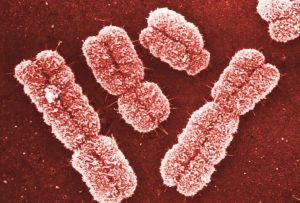
Neuroscientists from the Massachusetts Institute of Technology (MIT) and China have developed a new model for autism using gene editing techniques. The researchers used CRISPR to introduce a gene mutation linked to autism into macaque monkeys, which resulted in the monkeys exhibiting behavioral traits and brain connectivity patterns similar to humans with neurodevelopmental disorders. This new model could help in the development of better treatment options for autism spectrum disorder.
Previous studies on autism treatment using mice have been unsuccessful, leading many pharmaceutical companies to abandon testing. However, the researchers believe that using a primate model, such as macaque monkeys, could provide more effective treatments for severe forms of autism. The study focused on the Shank3 gene, which is strongly associated with autism and is involved in synaptic communication in the brain. Mutations or deletions of Shank3 can also cause a rare disorder called Phelan-McDermid Syndrome, which shares common characteristics with autism.
The macaque monkeys with the Shank3 mutation exhibited similar behavioral patterns to humans with the mutated gene, including frequent night awakenings, repetitive behaviors, and reduced social interactions. MRI scans of these monkeys also revealed patterns similar to humans with autism spectrum disorder. The researchers aim to test treatments for autism-related symptoms in the next year and identify biomarkers for evaluating treatment effectiveness. This approach could also be useful for studying genetic mutations in other neurological disorders such as Fragile X Syndrome and Rett Syndrome.
The study, published in the journal Nature, received funding from various organizations and aims to translate findings in the lab into effective treatments in the clinic. The researchers hope that this new model for autism will provide a better understanding of the neural mechanisms of the disorder and lead to the development of more effective treatments.
Story Source:
Materials provided by Massachusetts Institute of Technology. Original written by Anne Trafton. Note: Content may be edited for style and length.
